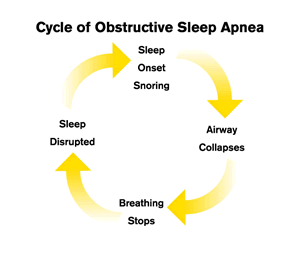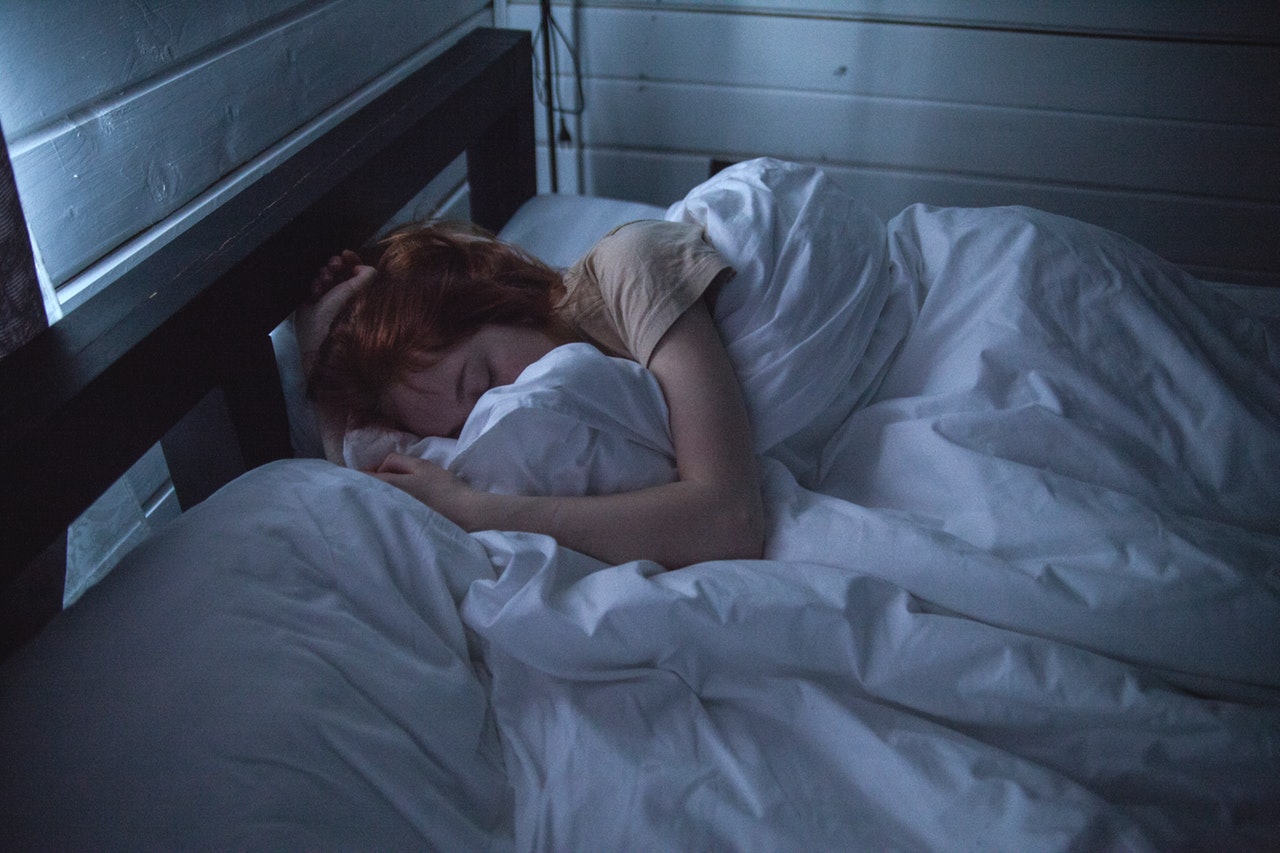We eat, breathe, and talk through our mouths. While most oral health issues focus on what we put in our mouths, dental health professionals are looking more and more into what happens to our daily routine when our mouths and throats are not working as well as they should.
The quality of our sleep is a good example of that.
Over 30 million adults in the U.S. suffer from a condition known as obstructive sleep apnea (OSA). This causes them to stop breathing temporarily as they sleep. This can happen hundreds of times during the night, and it severely affects the quality of sleep they get.
How much does it affect the quality of sleep? That depends on the severity of the condition. Potentially, it can lead to the equivalent of hours of lost sleep and have a negative impact on overall health and safety.
What is Sleep Apnea?
Sleep apnea is a condition where a person’s breathing is interrupted throughout the night. The interruption can be as short as a few seconds and can last up to a minute. In most cases, the interruptions are frequent, with hundreds of interruptions happening throughout the course of the night.
 Sleep apnea interruptions most commonly occur because the muscles of the mouth and throat have relaxed to the point where the soft tissue closes up, blocking the airway. When this happens, it’s impossible (or at least very difficult) to breathe. When the body notices the lack of oxygen, the brain sends a signal to wake the body up just enough to change position. But, once a person with sleep apnea falls back asleep, he or she relaxes and the process starts all over again.
Sleep apnea interruptions most commonly occur because the muscles of the mouth and throat have relaxed to the point where the soft tissue closes up, blocking the airway. When this happens, it’s impossible (or at least very difficult) to breathe. When the body notices the lack of oxygen, the brain sends a signal to wake the body up just enough to change position. But, once a person with sleep apnea falls back asleep, he or she relaxes and the process starts all over again.
Relaxation alone is rarely enough to close the airway, however. Other factors often contribute as well, such as:
- Excess body weight
- A naturally narrow airway
- Misaligned jaw
- Infected throat or tonsil tissue
- Oral cancer
- Hypertension
- Irritation of the mouth and throat (from allergies, smoking, etc.)
Sleep apnea tends to be more common in men than women, and tends to come on in middle age.
What Are the Signs of Sleep Apnea? And How is it Diagnosed?
Ultimately, a doctor who specializes in sleep disorders is in the best position to run tests to determine if a person has sleep apnea. There are some common signs of obstructive sleep apnea, however, which include:
- Loud or frequent snoring
- Nighttime breathing with noticeable pauses
- Noticeable lack of energy
- Morning headaches
- Other signs associated with poor sleep, including lack of concentration (“spaciness”), irritability, muscle weakness, and daytime fatigue and sleepiness
Is Sleep Apnea Serious?
It can be!
The constant waking that comes with sleep apnea severely lowers the quality of sleep a person gets. Sleep apnea, and a lack of sleep in general, have been tied to high blood pressure, heart disease, diabetes, and obesity.
“Obstructive sleep issues are reported to affect as many as 18 million Americans, according to the National Sleep Foundation,” said Dr. Rick Workman, Founder and Executive Chairman at Heartland Dental. “In addition, the Harvard Medical School Division of Sleep Medicine estimates that the economic impact of moderate-severe sleep apnea in the U.S. could be as high as $165 billion.”
The daytime drowsiness that sleep apnea causes shouldn’t be underestimated, either. Daytime sleepiness and fatigue have been found to increase the risk of driving accidents, as well as accidents in the workplace.
Why is Sleep Apnea a Dental Health Issue?
Believe it or not, your dentist is likely to be the first person to notice your sleep apnea.
Patients with sleep apnea tend to grind their teeth, a condition called bruxism. Thus, when a dentist sees worn teeth surfaces consistent with bruxism, it’s often an early warning sign of sleep apnea. A sudden spike in cavities can be a giveaway, too.
Many cases of sleep apnea are either caused by, or made worse by, dental health issues. For example, a misaligned jaw can make it so that the airway is smaller (restricted) when your mouth is at rest. This can make a relaxed airway into a target for sleep apnea. Growths in the mouth, either cancerous or non-cancerous, can also contribute to sleep apnea.
Finally, there is some evidence that sleep apnea also contributes to worsening oral health. The research is still being done, but poor sleep has been implicated in the worsening of gum disease and an increase in the number of cavities. Patients with sleep apnea also report a much higher rate of dry mouth and mouth sores. As mentioned above, bruxism (teeth grinding) is common in this condition and can lead to prematurely worn enamel and tooth decay.
How a Dentist Can Help with Sleep Apnea
Sleep apnea as a condition has only caught the attention of the medical profession in the past decade or so. Thus, many purported “treatments” for the condition are advertised, but it’s clear that not all of them work equally as well.
A misaligned jaw or bad bite can contribute to sleep apnea, and so one of the ways a dentist can help treat this condition is to correct the underlying jaw problem. This can be done with headgear and/or braces.
Your dentist might also suggest wearing a custom oral appliance at night to hold your jaw in a more forward position. This can create more room near the base of the tongue, essentially holding the airway open as you sleep. In fact, it was dentists who first pioneered the use of oral appliances in the treatment of obstructive sleep apnea, and the results have been promising.
Finally, a dentist can also help with some of the symptoms caused by sleep apnea, helping to fight gum disease and reduce damage done to teeth through bruxism.
“Many may not think sleep apnea pertains to dentistry, but it does indeed. In many cases, the first symptoms of sleep apnea will be detected during dental examinations or treatment, and if identified, can be treated effectively and comfortably by your dentist,” said Dr. Rick Workman. “If you have noticed any of these common symptoms, do get your dentist’s thoughts. It could radically alter your life and health.”
To find a dentist near you to help diagnose or treat sleep apnea using oral appliances, try using our dentist finder tool.


